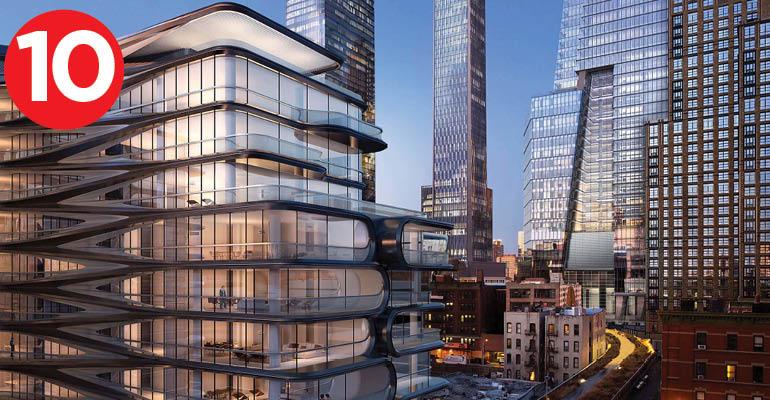- Microsoft to Expand Campus, as Amazon Looks Elsewhere “While Amazon is hunting for a second headquarters away from its hometown, its neighbor in the Seattle area — Microsoft — is doubling down on the region, with plans to invest billions of dollars in redeveloping its existing campus.” (The New York Times)
- A Vital Real Estate Tax Break to Preserve Main Street USA May Be Cut by the GOP “In October 2016 then-Republican presidential candidate Donald Trump was joined by his family at a ribbon-cutting for the Trump International Hotel in Washington, D.C., a project that transformed a classic post office into luxury lodging and benefited from a federal tax credit for the rehabilitation of historic properties that the Reagan tax reform of 1981 embraced. The fate of that historic tax credit remains uncertain in the current GOP tax plan, which the Senate hopes to push through before week’s end.” (CNBC)
- Brickell City Centre Stands As A New Model For Retail “There have been 6,700 store closings announced in the U.S. in 2017, which is already more than in all of 2008, in the thick of the financial crisis. In times like these, only innovative retail spaces can thrive, and that’s exactly what Hong Kong’s Swire Properties has done with the Brickell City Centre in Miami. This facility is a $1.05 billion mega shopping mall and mixed-use project that spans up to five blocks to the west of Brickell Avenue and to the south of the Miami River, in the Brickell district of downtown.” (Forbes)
- Retail Heir David Lowy Is Behind One57 Sale That Marked New York’s Priciest Foreclosure Auction “A limited liability company controlled by David Lowy, whose father Frank Lowy founded retail giant the Westfield , spent approximately $36 million on a condominium on New York City’s Billionaire’s Row at a recent foreclosure auction, according to two people with knowledge of the deal.” (Wall Street Journal, subscription required)
- Mall Stocks Rally on Holiday Sales Optimism, Ahead of ‘Dreaded December Lull’ “Call it the holiday comeback. Retail stocks, and mainly those of department store operators, were climbing at a rapid clip Wednesday morning, on the heels of upbeat reports regarding a strong start to the holiday season.” (CNBC)
- Landlords Reach $1M Settlement with City for Listing Illegal Hotel on Airbnb “The city has reached a $1 million settlement with two property owners it sued for operating an illegal hotel listed on sites like Airbnb, the Daily News has learned.” (Daily News)
- Competition for Renters Heats Up in Hudson Yards “Over the past few years, a number of rental developers placed huge bets on the transformation of Hudson Yards into a residential and commercial district. And as their buildings have opened in the past 18 months—flooding the area with some 2,000 new apartments as the market continues to plateau—they have had to employ a variety of novel tactics to get as many tenants as possible leased up. The Related Cos. is only partially done with its $20 billion Hudson Yards project's first phase, geared toward new office space.” (Crain’s New York Business, subscription required)
- How Hurricane Harvey Created a Perfect Storm for Houston Commercial Leases “Harvey’s physical mess quickly became a business mess, which in many cases has now turned into a legal mess.” (Houston Business Journal, subscription required)
- Regulators to Clarify Which Real Estate Loans Are Considered Dangerous “A proposed rule on how banks should calculate the amount of equity they need to hold to compensate for construction loans and other precarious debt could bring transparency to a years-old regulatory tangle, according to a report by EY.” (Commercial Observer)
- Legal Aid Sues City to Block Bedford-Union Armory Project “Legal Aid Society’s lawsuit opposing the contentious Bedford-Union Armory plan in Crown Heights aims to change the way the city evaluates tenant displacement. The organization filed its litigation against the city of New York on Wednesday, claiming that the city should not be allowed to move forward with the armory because officials did not properly determine how many residents it could price out of the neighborhood.” (The Real Deal)
0 comments
Hide comments

